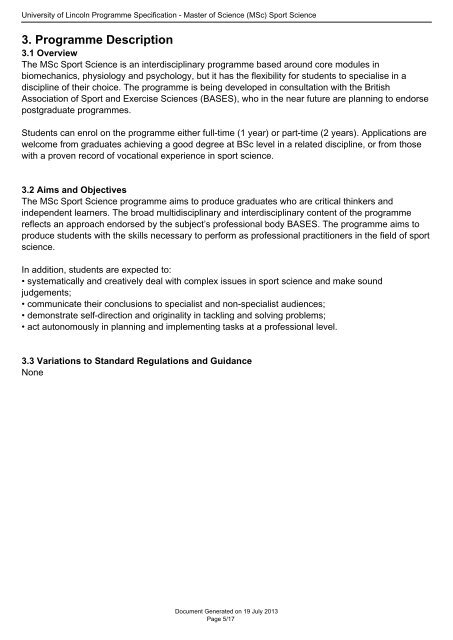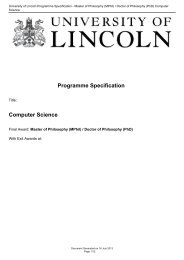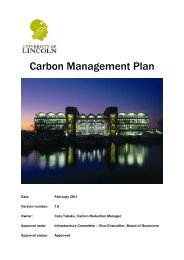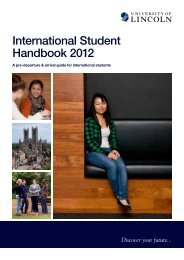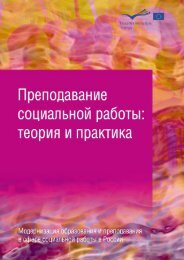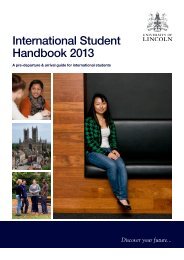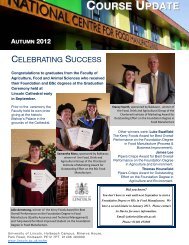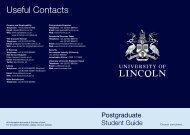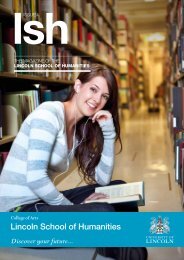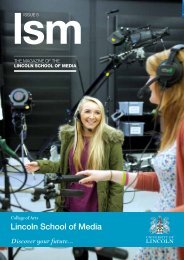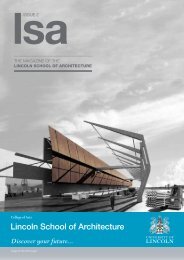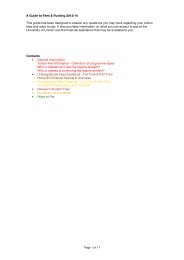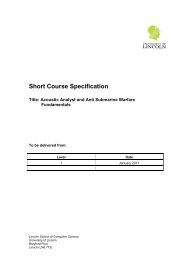Download the full 2013-14 Programme Specification for this course
Download the full 2013-14 Programme Specification for this course
Download the full 2013-14 Programme Specification for this course
Create successful ePaper yourself
Turn your PDF publications into a flip-book with our unique Google optimized e-Paper software.
University of Lincoln <strong>Programme</strong> <strong>Specification</strong> - Master of Science (MSc) Sport Science<br />
3. <strong>Programme</strong> Description<br />
3.1 Overview<br />
The MSc Sport Science is an interdisciplinary programme based around core modules in<br />
biomechanics, physiology and psychology, but it has <strong>the</strong> flexibility <strong>for</strong> students to specialise in a<br />
discipline of <strong>the</strong>ir choice. The programme is being developed in consultation with <strong>the</strong> British<br />
Association of Sport and Exercise Sciences (BASES), who in <strong>the</strong> near future are planning to endorse<br />
postgraduate programmes.<br />
Students can enrol on <strong>the</strong> programme ei<strong>the</strong>r <strong>full</strong>-time (1 year) or part-time (2 years). Applications are<br />
welcome from graduates achieving a good degree at BSc level in a related discipline, or from those<br />
with a proven record of vocational experience in sport science.<br />
3.2 Aims and Objectives<br />
The MSc Sport Science programme aims to produce graduates who are critical thinkers and<br />
independent learners. The broad multidisciplinary and interdisciplinary content of <strong>the</strong> programme<br />
reflects an approach endorsed by <strong>the</strong> subject’s professional body BASES. The programme aims to<br />
produce students with <strong>the</strong> skills necessary to per<strong>for</strong>m as professional practitioners in <strong>the</strong> field of sport<br />
science.<br />
In addition, students are expected to:<br />
• systematically and creatively deal with complex issues in sport science and make sound<br />
judgements;<br />
• communicate <strong>the</strong>ir conclusions to specialist and non-specialist audiences;<br />
• demonstrate self-direction and originality in tackling and solving problems;<br />
• act autonomously in planning and implementing tasks at a professional level.<br />
3.3 Variations to Standard Regulations and Guidance<br />
None<br />
Document Generated on 19 July <strong>2013</strong><br />
Page 5/17


